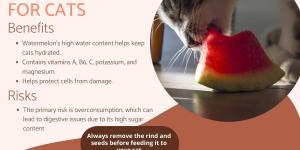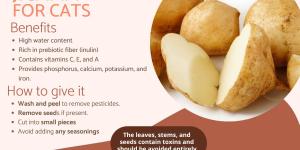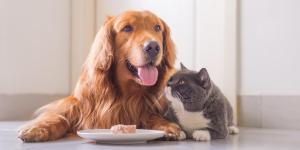Is It Safe for Cats to Eat Pumpkin?



See files for Cats
When it comes to feline nutrition, it's essential to understand what our beloved cats can and cannot eat. As pet owners, we constantly strive to provide them with a well-rounded and balanced diet that meets their specific dietary needs. Amidst the array of human foods available, one particular vegetable often piques our curiosity, pumpkin. But can cats safely indulge in this popular autumn delight?
In this article from AnimalWised, we will delve into the question of whether cats can eat pumpkin. We'll explore the potential benefits it can offer, the proper way to incorporate it into their diet, and the considerations to keep in mind to ensure our feline friends' well-being.
Can cats eat pumpkin?
Pumpkin, also known as squash, is a versatile fruit belonging to the Cucurbitaceae family. It comes in various shapes and colors, with orange and green being the most common, although you can also find yellowish, black, and purple varieties.
The good news for cat owners is that pumpkins, whether orange or green, are safe and non-toxic for cats to consume. In fact, incorporating pumpkin into a cat's diet can offer several important benefits, which is why many commercial cat foods include pumpkin in their ingredient lists.
However, it's crucial to follow certain recommendations when introducing pumpkin to your cat's diet to ensure their safety and overall health.
As with any new addition to your cat's diet, it's essential to monitor their response. If you notice any signs of digestive upset or adverse reactions, discontinue feeding pumpkin and consult your veterinarian.
Can cats eat raw pumpkin?
Firstly, it's worth noting that cats generally do not prefer raw pumpkin due to its firm texture. To make it more appealing for your feline friend, it's best to offer cooked pumpkin. Cooking the pumpkin results in a smoother texture that is much more palatable to cats.
Benefits of pumpkin for cats
Including pumpkin in a cat's diet can provide several nutritional benefits. Let's explore the advantages of incorporating this vegetable into their meals:
- Low caloric intake: pumpkin is a low-calorie food, with only 15 kcal per 100 grams. This makes it an excellent choice for cats that are overweight or prone to obesity, as it can help support a low-calorie diet.
- Fiber source: pumpkin is rich in both soluble and insoluble fiber. While cats cannot digest fiber, it plays a crucial role in their diet. Fiber improves intestinal transit, regulates fecal consistency, and promotes the maintenance of a healthy intestinal microbiota.
- Vitamins and minerals: Pumpkin is a source of various vitamins and minerals that are beneficial for cats. It contains notable amounts of vitamin C, which is an important antioxidant. Additionally, it provides vitamin B1 (thiamine), which is essential for proper nerve function. In terms of minerals, pumpkin is particularly rich in potassium while being low in sodium. This mineral balance can be beneficial for cats with hypertension issues.
- Carotenoids: Pumpkin contains carotenoids, with β-carotene being the most prominent. In a cat's body, these carotenoids are transformed into vitamin A. Carotenoids are known for their antioxidant properties, which help combat free radicals and support overall health. They also contribute to boosting the immune system.
By including pumpkin in a cat's diet, you can provide them with a nutrient-rich food that supports weight management, digestive health, and immune function. However, it's essential to remember that pumpkin should be introduced gradually and in appropriate quantities. Always consult with your veterinarian to determine the ideal portion sizes and ensure that pumpkin is suitable for your individual cat's needs.

Determining the quantity of pumpkin for cats
The appropriate amount of pumpkin to feed your cat will depend on whether you provide a homemade or commercial diet. Here are some guidelines to consider:
Homemade diet
If you prepare a homemade diet for your cat and wish to include pumpkin in the vegetable portion of their meals, the amount will vary based on their individual nutritional requirements. Factors such as age, activity level, and physiological state (such as being spayed/neutered or pregnant) play a role in determining the appropriate amount of pumpkin.
It is crucial to ensure that the overall diet, including the balance between animal-based foods and vegetables, meets your cat's nutritional needs. To guarantee a well-balanced and nutritionally adequate homemade diet, it is advisable to consult a professional specializing in animal nutrition. They can provide personalized guidance based on your cat's specific requirements.
Commercial diet
If you typically feed your cat a commercial diet, incorporating pumpkin can be done as a treat or occasional addition, provided that your cat enjoys it.
For instance, you can offer three or four cubes of cooked or roasted pumpkin once a week as a special reward. Remember that the commercial diet already contains the necessary nutrients, so pumpkin serves as a supplementary treat rather than a significant portion of their daily intake.
Regardless of the diet type, it is crucial to introduce any dietary changes gradually and monitor your cat's response. Sudden changes can cause digestive upset, so it's important to observe your cat's behavior and consult with a veterinarian if you have any concerns.
Always keep in mind that every cat is unique, and their nutritional needs may vary. Seeking professional advice and monitoring your cat's health and well-being are essential when making adjustments to their diet.
If you're interested in providing a homemade food diet for your cat, we have another article that covers this topic in detail.
How to prepare pumpkin for cats?
As mentioned before, cats generally do not find the flavor and texture of raw pumpkin appealing, so it is recommended to offer it cooked. However, before cooking the pumpkin, it is essential to remove the seeds and skin.
While pumpkin seeds themselves are not toxic to cats, they can be slippery and pose a choking or suffocation hazard. Therefore, it is advisable to remove the seeds before feeding pumpkin to your cat.
As for the pumpkin skin, it is hard and fibrous, which can potentially cause oral and digestive mucosa injuries in cats. Hence, it is important to peel the pumpkin before cooking.
Once the seeds and skin have been removed, you can proceed to cut the pumpkin pulp into small cubes. The cubed pumpkin can be cooked using either of the following methods:
- Boiled: Place the pumpkin cubes in a pot with an ample amount of water and cook for approximately 20-25 minutes until the flesh becomes tender.
- Roasted: Preheat the oven to 180º C (350º F). Arrange the pumpkin cubes on a baking sheet and bake them for around 30-40 minutes until they are soft and easily mashable.
During the cooking process, it is crucial not to add any salt, spices, or seasonings to the pumpkin. Cats have specific dietary requirements, and the addition of these substances can be harmful to their health. It is best to keep the pumpkin plain and unseasoned.
By following these guidelines, you can ensure that the cooked pumpkin is safe and suitable for your cat's consumption, providing them with a more palatable texture and flavor. Remember to let the cooked pumpkin cool down before serving it to your feline friend.
Side effects of pumpkin for cats
In general, pumpkin is well-tolerated by cats and does not cause significant side effects when fed in moderation and prepared properly. However, there are a few considerations to keep in mind:
- Gastrointestinal upset: while uncommon, some cats may experience mild gastrointestinal upset, such as gas, bloating, or loose stools, when introduced to pumpkin. This can occur if the pumpkin is introduced too quickly or in excessive amounts.
- Allergic Reactions: although rare, some cats may develop allergic reactions to pumpkin. Signs of an allergic reaction may include itching, skin rashes, vomiting, or diarrhea. If you notice any of these symptoms after feeding pumpkin to your cat, discontinue its use and consult with a veterinarian for further evaluation.
- Nutritional imbalances: as mentioned previously, while pumpkin can offer certain nutritional benefits, it should not be the sole component of a cat's diet. Overfeeding pumpkin or relying heavily on it without ensuring a balanced overall diet can lead to nutritional imbalances over time.
To minimize the risk of side effects, it is recommended to follow the guidelines for feeding pumpkin to cats, including proper preparation, appropriate portion sizes, and incorporating it as part of a balanced diet.
Don't miss out on our article about recommended fruits and vegetables for cats if you're interested in providing your feline companion with a variety of nutritious options beyond pumpkin.
Contraindications of pumpkin for cats
While pumpkin is generally safe for cats and offers several potential health benefits, there are a few contraindications and considerations to be aware of:
- Diabetes: cats with diabetes may need to be cautious when consuming pumpkin due to its natural sugar content. Although pumpkin is relatively low in sugar compared to other fruits, it is advisable to monitor the cat's blood glucose levels and consult with a veterinarian before incorporating pumpkin into their diet.
- Medical Conditions and medications: cats with specific medical conditions or those on certain medications may require individualized dietary plans. It is important to consult with a veterinarian before introducing pumpkin or any other dietary changes if your cat has underlying health issues or is taking medications.
As with any dietary change or addition, veterinary advice can help determine if pumpkin is suitable for your cat based on their specific health conditions, medications, and dietary needs.
Make sure to check out our article on forbidden foods for cats as well. It's important to be aware of the foods that can be harmful or toxic to your feline friend.
If you want to read similar articles to Is It Safe for Cats to Eat Pumpkin?, we recommend you visit our Homemade diets category.
- Ministry of Agriculture, Fisheries and Food (MAPA). Pumpkin. Cucurbita maxima . Available at: https://www.mapa.gob.es/eu/ministerio/servicios/informacion/calabaza_tcm35-102444.pdf






